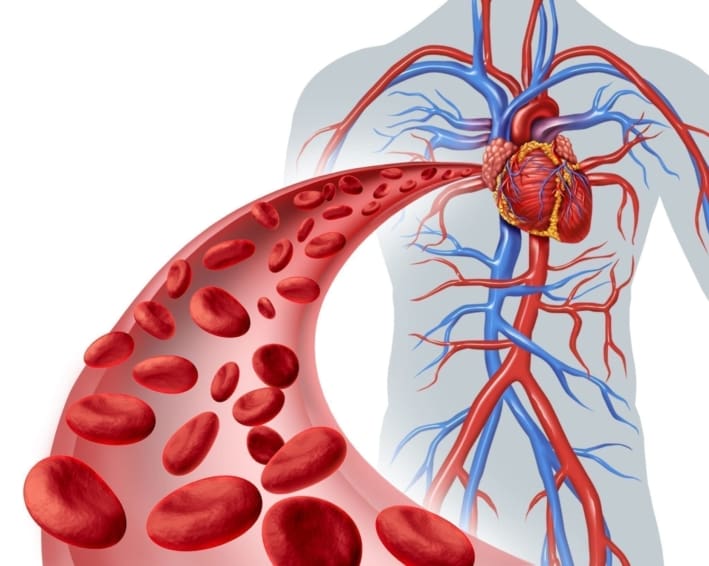
What is homocysteine?
Homocysteine is an amino acid (a building block of protein) that is produced in the body.
How is a high homocysteine level harmful?
High homocysteine levels in the blood can damage the lining of the arteries. High levels may also make the blood clot more easily than it should. This can increase the risk of blood vessel blockages. A clot inside your blood vessel is called a thrombus. A thrombus can travel in the bloodstream. From there, it can get stuck in your:
- Lungs (called a pulmonary embolism)
- Brain (which can cause a stroke)
- Heart (which can cause a heart attack)
Some people have very high levels of homocysteine. They are at an increased risk for heart disease.
What causes a high homocysteine level?
Homocysteine is normally changed into other amino acids for use by the body. Vitamin B helps your body use the homocysteine. If your homocysteine level is too high, you may not be getting enough B vitamins.
Most people who have a high homocysteine level don’t get enough folate (also called folic acid), vitamin B6, or vitamin B12 in their diet. Replacing these vitamins often helps return the homocysteine level to normal. Other possible causes of a high homocysteine level include:
- Low levels of thyroid hormone
- Kidney disease
- Psoriasis
- Some medicines
- When the condition is common in your family
How is the homocysteine level measured?
Homocysteine is measured using a simple blood test. Your doctor will order the test only if they suspect you have high levels. If your homocysteine level is too high, you need to lower it. This is especially important if you have blockages in your blood vessels. Sometimes your doctor may take a watchful waiting approach. This means they will monitor your level closely but not take steps to lower it. Your doctor may do this if you have no other major risk factors for cardiovascular disease and you don’t have atherosclerosis (a buildup of plaque in your arteries). If your homocysteine level increases further, you may need to lower it.
No studies have shown that lowering homocysteine levels helps reduce strokes, heart attacks, or other cardiovascular conditions. But a high homocysteine level is a risk for heart disease. So, it’s a good idea to lower it if you can.
Path to improved health
How can I lower a high homocysteine level?
Eating more fruits and vegetables can help lower your homocysteine level. Leafy green vegetables such as spinach are good sources of folate. Other good sources of folate include:
- Many breakfast cereals
- Fortified grain products
- Lentils
- Asparagus
- Most beans
You may need to increase the amount of vitamin B-6 in your diet. Foods that are rich in vitamin B-6 include:
- Fortified breakfast cereals
- Potatoes
- Bananas
- Garbanzo beans (chickpeas)
- Chicken
You also may need to increase the amount of vitamin B-12 you eat. Good sources of vitamin B-12 include:
- Dairy products
- Organ meats (such as liver)
- Beef
- Some types of fish
Adjusting your diet may not be enough to lower your homocysteine level. If it’s not, your doctor may suggest that you take a folate supplement. You may also need to take a vitamin B-6 and vitamin B-12 supplement.
Things to consider
If you start taking folate or vitamin B supplements, you should have your homocysteine level rechecked after 8 weeks. If your homocysteine level remains high, your doctor may have you try a higher dose. You may need to have some tests to see if you have another health condition that causes high homocysteine levels. If you have had a high homocysteine level, you may need to have your level checked more regularly (2 or 3 times a year).
Questions to ask your doctor
- What is causing my homocysteine level to be high?
- Could a high level be the sign of another condition?
- Can I lower my homocysteine level through diet alone?
- Should I take a supplement?
- Can I ask my doctor to check my homocysteine level even if I have no symptoms?
Resources
National Institutes of Health, MedlinePlus: Homocysteine Test
![]()
Copyright © American Academy of Family Physicians
This information provides a general overview and may not apply to everyone. Talk to your family doctor to find out if this information applies to you and to get more information on this subject.




